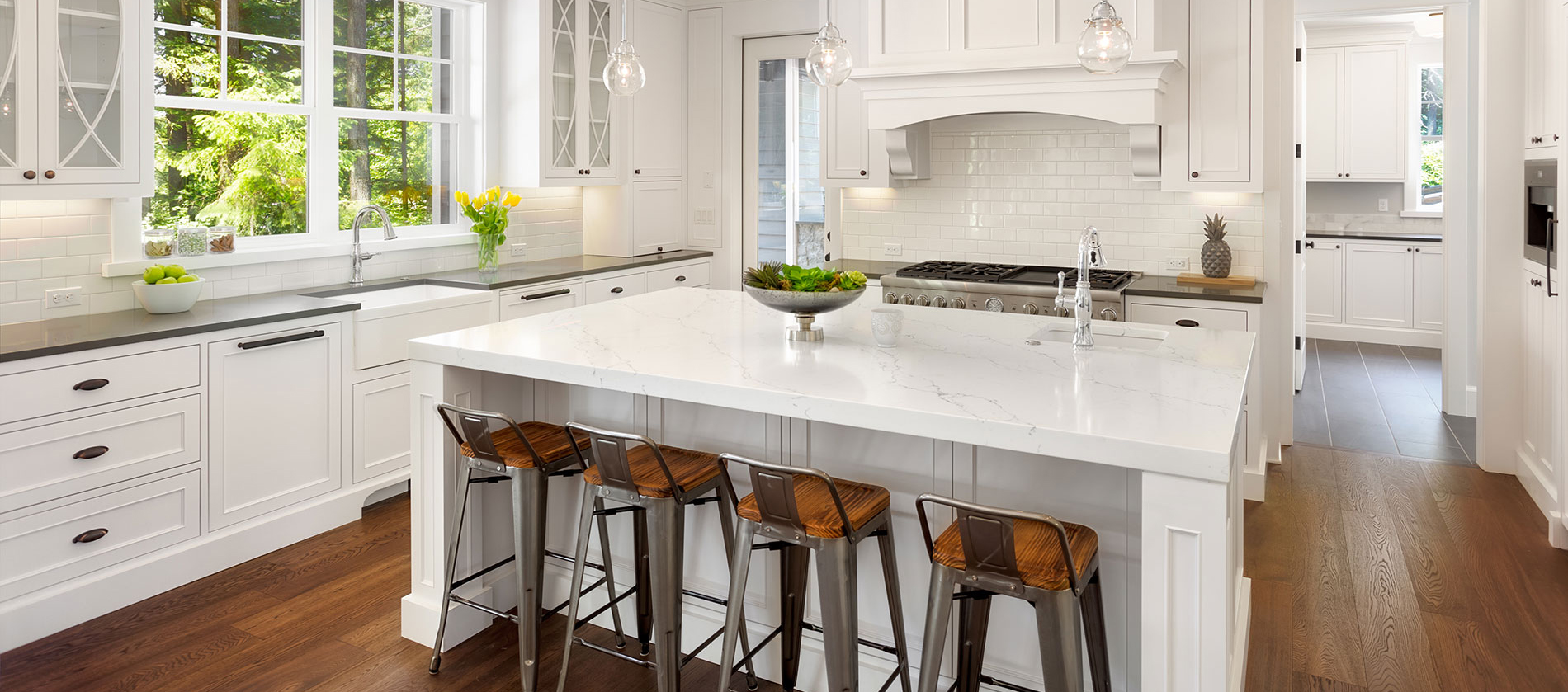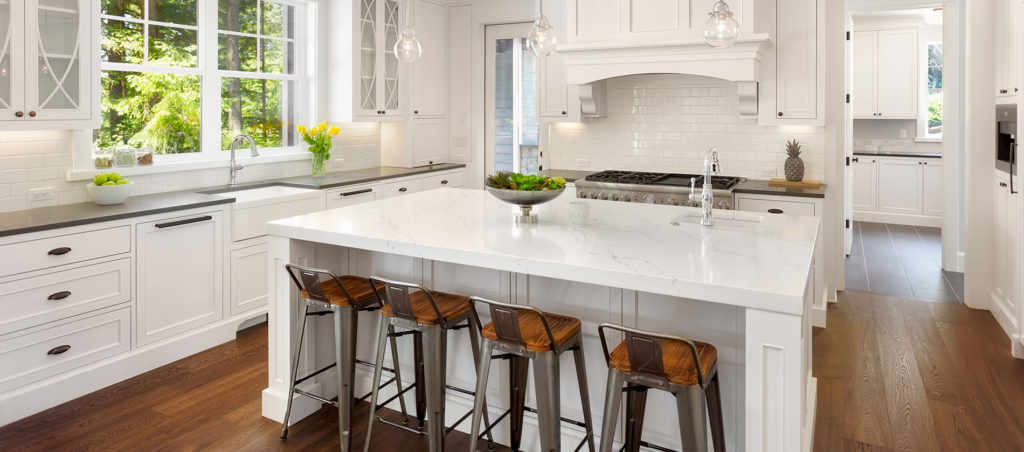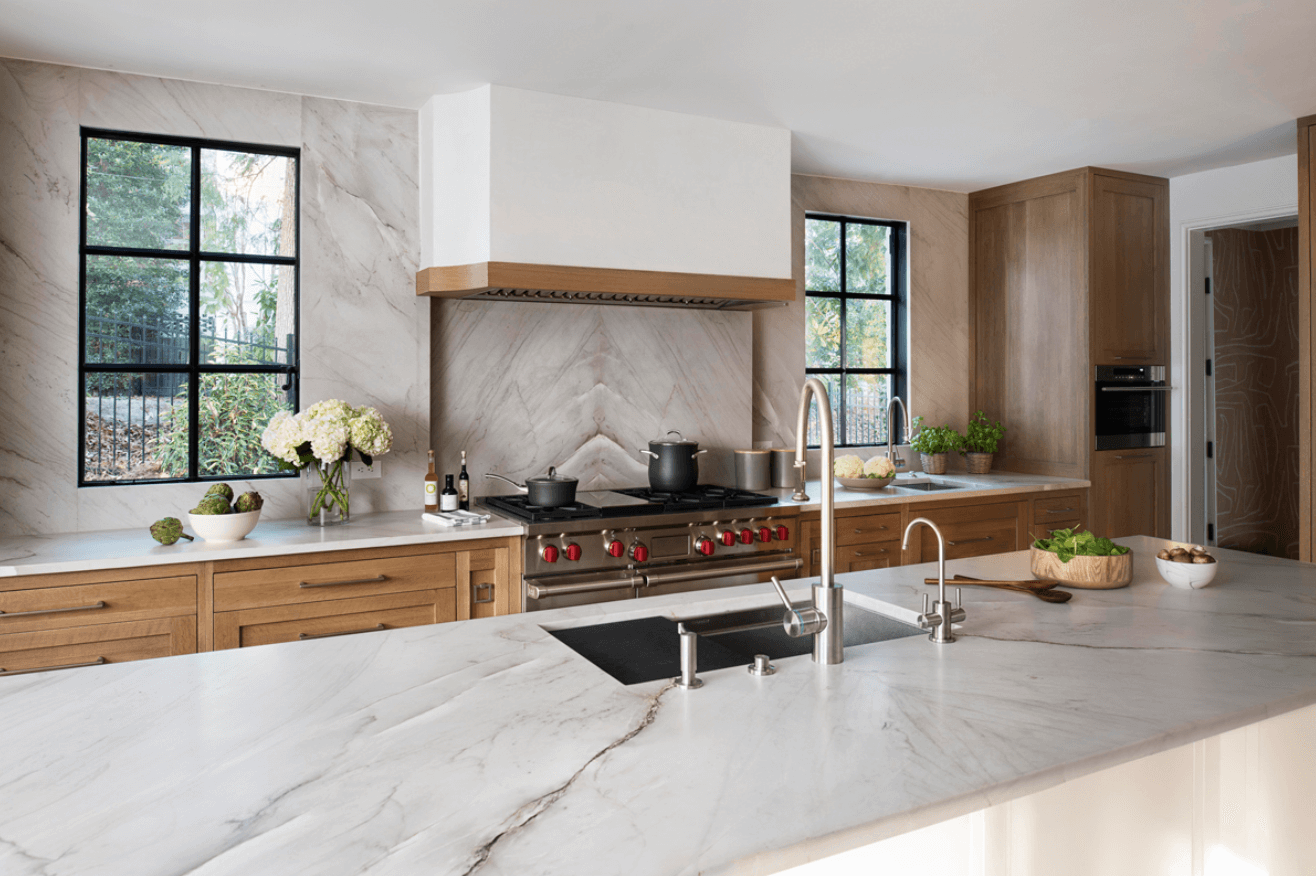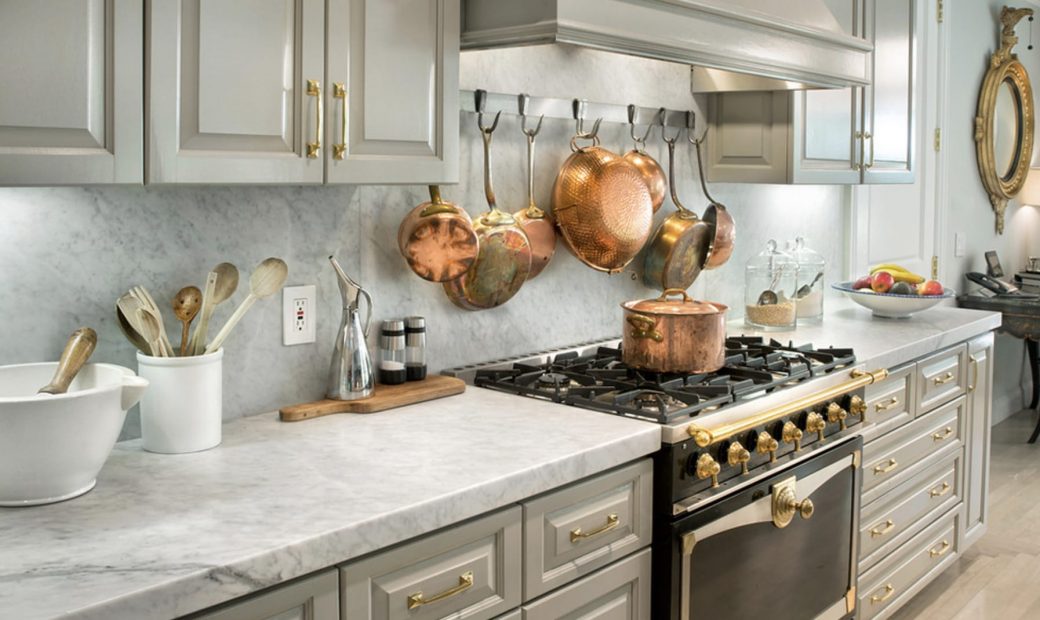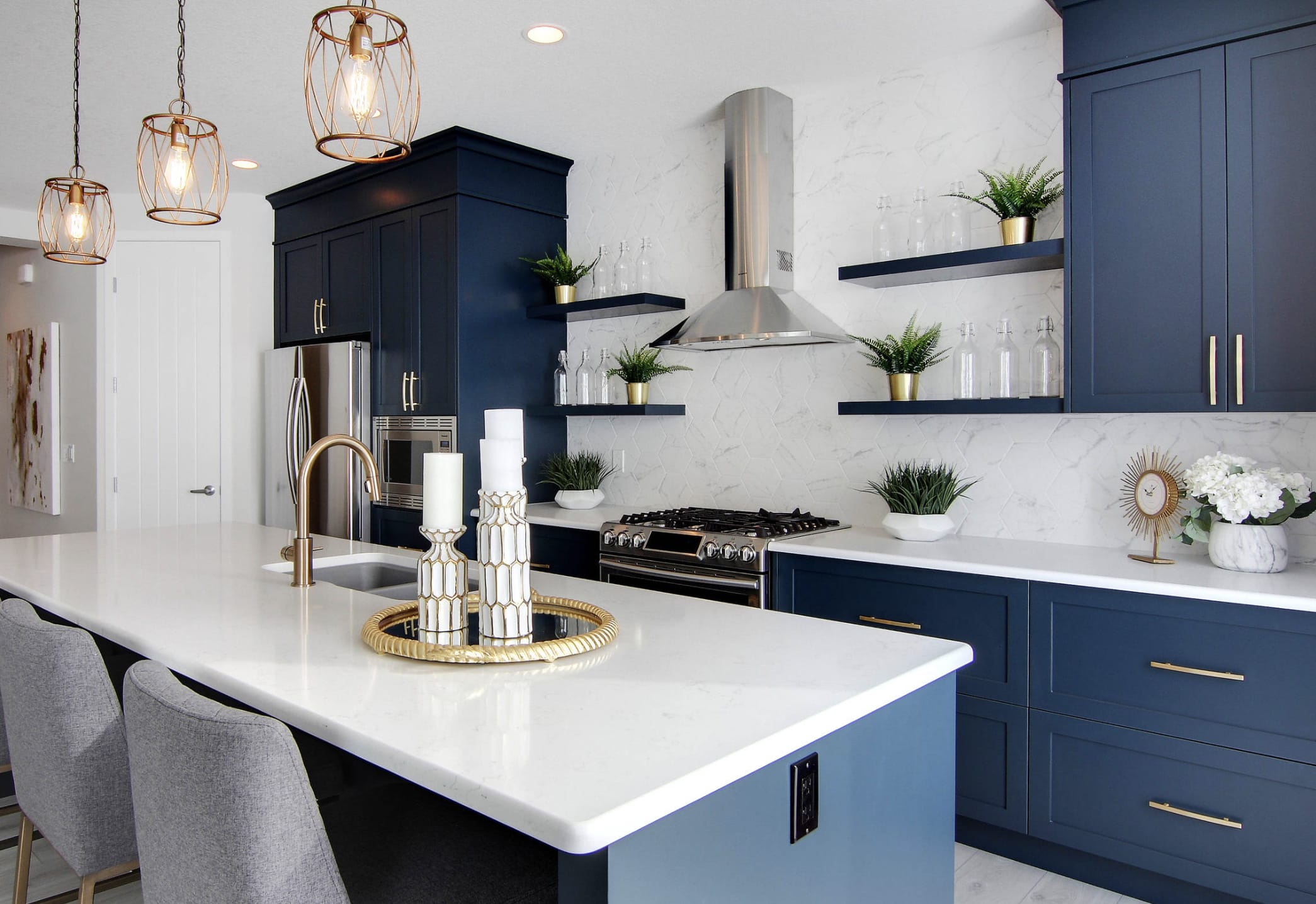Marble is a classic beauty material to fit any countertop and backsplash design for your remodeling project. Here are a few design ideas you can have for using this material for your kitchen and bathroom renovations.
 Carrara Backsplash and Black Marble grout
Carrara Backsplash and Black Marble grout
The whiteness and gray veinings of the Carrara Backsplash get more contrast by using black marble grout. It both looks classic and chic for an all-season design.
 Gray and Beige Marble Backsplash and countertop
Gray and Beige Marble Backsplash and countertop
You can have a gray marble backsplash and beige marble countertop to achieve that cool and warm combination.
 Gray and White Marble on Kitchen Wall to Backsplash
Gray and White Marble on Kitchen Wall to Backsplash
A combination of gray and white marble on your backsplash running to your kitchen wall creates a stunning look for your kitchen. The seamless appearance gives it a smooth, well-polished design.
 White Himalaya Backsplash and Black Countertop
White Himalaya Backsplash and Black Countertop
To have a greater emphasis on your white Himalaya backsplash, you need to pair it with black marble countertops. This is an excellent ageless design that complements both rustic and modern home designs.
 White Marble backsplash and waterfall
White Marble backsplash and waterfall
Using a Carrara or White Thassos for your backsplash and waterfall will create that perfect and pure seamless look for your kitchen and bathroom renovations.
These are just some of the possible designs you can have when you use marble countertops for your home renovations. The only limitation to your endless designs is your imagination and creativity.
